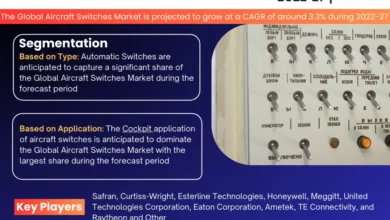
In the fast-paced world of modern business, professionals are constantly bombarded with information that needs to be remembered and recalled accurately. Whether it’s client names, project details, important dates, or industry-specific terminology, effective memory techniques can greatly enhance productivity and efficiency. Phonetic verbatim mnemonics, a powerful tool for memory enhancement, can be particularly beneficial for professionals seeking to improve their recall capabilities. This article explores the concept of phonetic verbatim mnemonics, their benefits, and practical applications for professionals.
Understanding Phonetic Verbatim Mnemonics
Phonetic verbatim mnemonics combine the principles of phonetics and verbatim repetition to create strong, memorable associations between information and familiar sounds or words. The phonetic element involves using similar sounding words or syllables to create a link with the information to be remembered, while verbatim repetition reinforces this link through repetition.
For example, to remember the name “Carter,” you might use the phrase “Carter carts crates.” The similar sounding words “Carter” and “carts” create a phonetic link, while the verbatim repetition of the name “Carter” reinforces the memory. This technique is especially useful for remembering names, terminology, and specific details in a professional setting.
Benefits of Phonetic Verbatim Mnemonics
Phonetic verbatim mnemonics offer several advantages that make them ideal for professional use:
Enhanced Memory Retention
By creating strong associations between information and familiar sounds or words, phonetic verbatim mnemonics enhance memory retention. The repetitive nature of this technique further solidifies the memory, making it easier to recall the information when needed.
Improved Recall
Phonetic verbatim mnemonics facilitate improved recall by creating a clear and memorable link between the information and a familiar sound or word. This makes it easier to retrieve the information from memory during important meetings, presentations, or conversations.
Practical and Easy to Use
Phonetic verbatim mnemonics are easy to create and use, requiring minimal effort to implement. This makes them a practical tool for everyday professional tasks, such as remembering key points for a presentation or recalling client details during a meeting.
Versatility
This technique can be applied in a wide range of professional contexts, from project management and client relations to learning new industry terminology and preparing for certifications. Whether you need to remember a list of tasks, a series of steps, or important deadlines, phonetic verbatim mnemonics can be adapted to suit your needs.
Practical Applications of Phonetic Verbatim Mnemonics for Professionals
Phonetic verbatim mnemonics can be applied in various professional contexts to enhance memory retention and recall. Here are some practical examples:
Remembering Client Names
In client-facing roles, remembering names is crucial for building rapport and establishing strong relationships. Phonetic verbatim mnemonics can help create memorable associations between clients’ names and familiar sounds or words.
For example, to remember the name “Mr. Green,” you might use the phrase “Mr. Green likes green tea.” The similar sounding words “Green” and “green tea” create a phonetic link, while the verbatim repetition of the name “Mr. Green” reinforces the memory.
Learning Industry Terminology
Professionals often need to learn and recall industry-specific terminology, which can be challenging, especially for those new to the field. Phonetic verbatim mnemonics can make this task easier by creating associations between the new terms and familiar sounds or words.
For example, to remember the term “blockchain,” you might use the phrase “a blockchain is a chain of blocks.” The similar sounding words “blockchain” and “chain of blocks” create a phonetic link, while the verbatim repetition of the term “blockchain” reinforces the memory.
Managing Project Details
Project managers and team members need to remember numerous details, from task assignments and deadlines to project milestones and deliverables. Phonetic verbatim mnemonics can help create memorable associations between these details and familiar sounds or words.
For example, to remember a project deadline of “December 15th,” you might use the phrase “December 15th is the deadline for the project plan.” The similar sounding words “December 15th” and “deadline for the project plan” create a phonetic link, while the verbatim repetition of the date “December 15th” reinforces the memory.
Preparing for Presentations
Professionals often need to prepare for presentations, which requires remembering key points, statistics, and other important information. Phonetic verbatim mnemonics can help create memorable associations between these points and familiar sounds or words.
For example, to remember a key point about market trends, you might use the phrase “market trends indicate growth in green technologies.” The similar sounding words “market trends” and “growth in green technologies” create a phonetic link, while the verbatim repetition of the phrase “market trends” reinforces the memory.
Studying for Certifications
Professionals pursuing certifications need to remember a large amount of information, from technical terms and concepts to procedures and best practices. Phonetic verbatim mnemonics can help create memorable associations between this information and familiar sounds or words.
For example, to remember the concept of “agile methodology,” you might use the phrase “agile methodology allows for flexible project management.” The similar sounding words “agile methodology” and “flexible project management” create a phonetic link, while the verbatim repetition of the term “agile methodology” reinforces the memory.
Tips for Creating Effective Phonetic Verbatim Mnemonics
To create effective phonetic verbatim mnemonics, consider the following tips:
Use Familiar Sounds or Words
Choose sounds or words that are familiar and easy to remember. The more familiar the association, the easier it will be to recall the information.
Keep It Simple
Avoid complex or lengthy phrases. Simple and concise phrases are more effective for creating strong associations and reinforcing the memory.
Repeat the Information
Include verbatim repetition of the information to reinforce the memory. This repetition helps to solidify the association in your mind.
Be Creative
Use your creativity to come up with unique and memorable associations. The more creative and vivid the association, the more effective the mnemonic will be.
Practice Regularly
Use phonetic verbatim mnemonics regularly to strengthen your memory skills. The more you practice, the better you will become at creating and using these mnemonics.
Conclusion
Phonetic verbatim mnemonics are a powerful and versatile tool for enhancing memory retention and recall, making them ideal for professional use. By creating memorable associations between information and familiar sounds or words, this technique makes it easier to remember client names, industry terminology, project details, and other important information. With regular practice and creativity, phonetic verbatim mnemonics can become an invaluable asset for improving productivity, efficiency, and success in the professional world.


